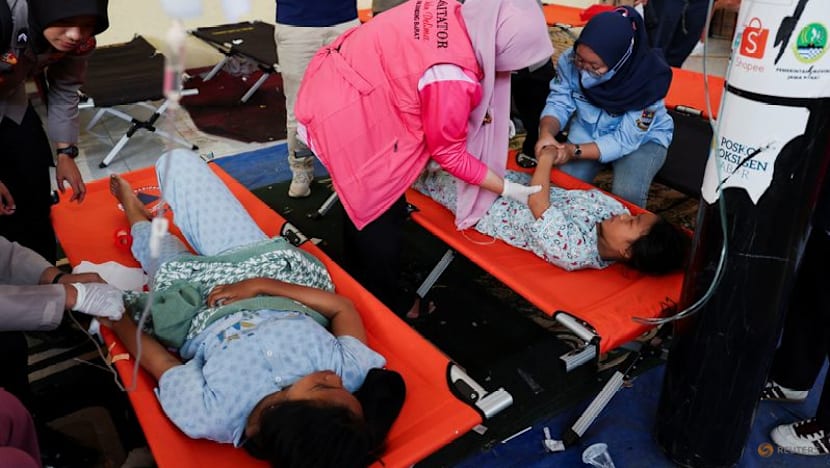Prabowo orders acceleration of Indonesia's free-meals programme with stronger controls amid food poisoning outbreaks
More than 5,900 recipients have suffered food poisoning since the programme’s rollout in January, the National Nutrition Agency says.

JAKARTA: Indonesian President Prabowo Subianto has ordered an acceleration of the government’s flagship free-meals programme with stronger governance in place, according to National Nutrition Agency head Dadan Hindayana.
The programme, which aims to provide meals to 82.9 million schoolchildren and pregnant women, has caused food poisoning in more than 5,900 recipients in 70 incidents since its rollout in January, according to the agency.
The nationwide project has reached nearly 30 million recipients with the launch of about 10,000 kitchens.
The food poisoning outbreaks, coupled with other concerns, have led civil society groups to call for the programme to be suspended for a fuller evaluation.
“I have been instructed by the president to accelerate the free nutritious meals programme because many children and parents are waiting for the meals,” Dadan said on Thursday (Oct 2) at a press conference, reported news outlet Kompas.
“I will keep carrying out this mandate unless there is another order from the president,” he said, noting that Prabowo has called for an equal distribution of the programme across all regions in the country.
The National Nutrition Agency has apologised for lapses in the programme and admitted negligence and weak oversight, while Prabowo has said the initiative would continue with shortcomings addressed.
After a cabinet meeting last weekend, Prabowo reportedly ordered each kitchen in the programme to be given rapid testing equipment to check food quality, a food tray steriliser, a water filter and CCTV connected to the central government for monitoring.
Speaking at the same press conference on Thursday as Dadan, Coordinating Minister for Food Affairs Zulkifli Hasan said investigation into the food poisoning incidents is being carried out promptly.
“The government continues to ensure that the free-meals programme is safe as it is the right of all citizens so they can grow into a high-quality population. In line with President Prabowo’s directive, we are thoroughly improving the system of the programme and its governance,” Zulkifli was quoted as saying by Antara news agency.
Just last week, more than 1,000 children in West Java suffered food poisoning from the school lunches and the province’s governor Dedi Mulyadi called for an evaluation of the programme, including measures to address the students’ trauma following the incident.
Zulkifli said the government would issue a regulation within a week that will define the roles, authority and responsibilities of regional governments, ministries and institutions in managing the free-meals programme.
“Children’s safety is not just about numbers, it is our top priority. We want great and smart children. Free nutritious meals are a basic right,” he said.
According to Zulkifli, the National Nutrition Agency will shut down all kitchens found to be responsible for food poisoning incidents. Fifty-six kitchens have been suspended so far, reported Antara.
According to Health Minister Budi Gunadi Sadikin, the government is requiring schools to conduct strict checks before the meals are distributed, including inspections for colour, odour and the presence of slime.
Every kitchen must also obtain a Hazard Analysis and Critical Control Point (HACCP) certification accredited by the country’s National Accreditation Committee to prove that proper food safety management is in place, said Dadan.
Besides conducting investigations, kitchen unit leaders have also been instructed to work with local communities to support trauma recovery efforts for those affected by the recent food poisoning cases.
“Kitchen service leaders and partners must reach out to address trauma in communities as every incident causes pain, parental anxiety and public trust to be eroded,” Dadan said.
All medical costs for children hospitalised due to food poisoning will be covered under the programme, he added.
Antara reported that the food poisoning incidents were typically caused by bacteria including E.coli found in water, rice and chicken, as well as salmonella in chicken, eggs and vegetables.
















